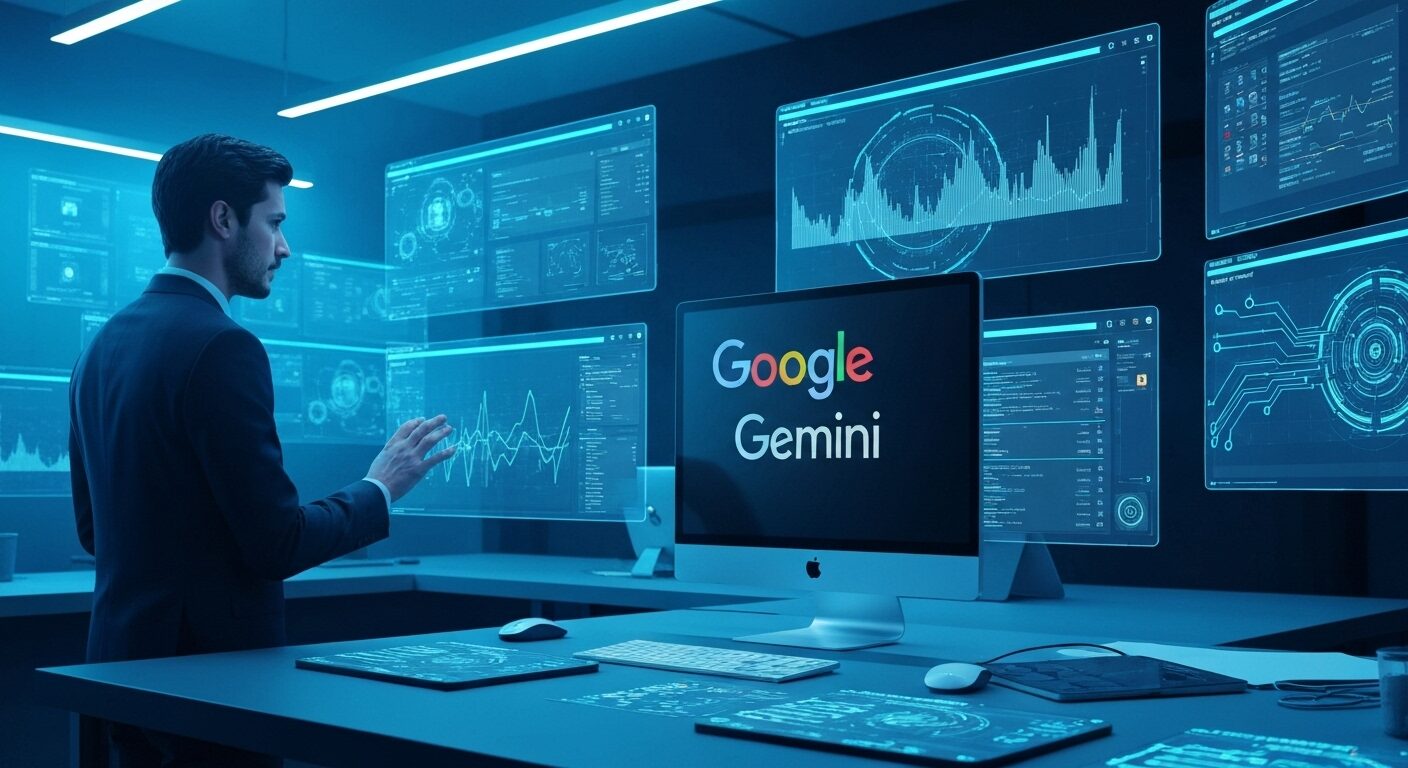The artificial intelligence (AI) landscape is witnessing an unprecedented escalation, with tech giants waging a true “war” for supremacy in automation. Recently, Google stirred the market with the launch of Gemini 2.5 Computer Use, an AI model designed to interact with internet browsers in a human-like manner. This strategic move comes just one day after OpenAI’s Dev Day announcements, solidifying the rivalry and the accelerating pace of innovation.
Google’s Strategy: Browser-Focused Automation
Google’s Gemini 2.5 Computer Use represents a distinct tactical approach in the AI automation race. Instead of seeking full control over desktop environments, as some of its competitors do, Google chose to specialize its new model in exclusively browser-based interactions. Imagine an AI capable of filling out complex forms, clicking buttons, navigating web applications without specific APIs, and performing digital tasks that require visual comprehension and human reasoning. This is exactly what Gemini 2.5 Computer Use promises.
This technology, which was being quietly tested through Project Mariner (a prototype capable of adding items to online shopping carts based on recipes), now becomes a commercially available tool for developers. The goal is clear: to fill the gap where traditional automation fails, offering a robust solution for scenarios that require interaction with interfaces created for human eyes and fingers, not for pure code.
For those looking to delve deeper into the Gemini universe, understanding the nuances of interaction is essential. Mastering prompt engineering for Google’s Gemini AI can be the key to unlocking its full potential in advanced visual synthesis and other applications.
The Battle of the Giants: Google vs. OpenAI vs. Anthropic
Competition in the AI agents space is hotter than ever. Anthropic was one of the first to move, releasing computer use features with its Claude model months earlier. OpenAI, with its ChatGPT Agent and recent announcements of new developer applications, has solidified its position as a dominant player. Now, Google enters the dispute with a proposal that, although more restrictive, might be its biggest advantage.
While the ChatGPT Agent and Anthropic’s tools aim to control complete operating systems, Gemini 2.5 Computer Use is limited to 13 specific browser actions, such as opening tabs, typing text, and dragging elements. This apparent limitation is, in fact, a strategic strength. By focusing exclusively on web interactions, Google can optimize performance for the most common automation use cases, avoiding the security and reliability challenges associated with full system access. Google claims its model “outperforms leading alternatives across multiple web and mobile benchmarks,” a clear message to its rivals.
This new front in the AI competition reflects a constantly evolving technological landscape. To better understand how these giants shape the future, it’s interesting to revisit how the Netscape vs. Microsoft war defined the future of Open AI, offering a historical parallel about rivalries that transform industries.
Access to Gemini 2.5 Computer Use is already available to developers through Google AI Studio and Vertex AI. Additionally, Google has released a public demonstration on Browserbase, where anyone can watch the AI perform tasks such as playing 2048 or browsing Hacker News.
Implications and the Future of AI Automation
The implications of the Gemini 2.5 Computer Use launch go beyond simple browser automation. This move represents Google’s attempt to capture the minds of developers who are increasingly turning to AI agents. As companies rush to automate routine digital tasks, the platform that makes this easiest for developers is likely to dominate the next wave of AI applications.
The expansion of AI into different domains is undeniable. Google Gemini itself is already revolutionizing the home with new features, turning televisions into command centers and promising deeper integration into our daily lives.
Google’s timing suggests strategic urgency. Instead of waiting for a major launch event, the company anticipated this release immediately following OpenAI’s announcements, indicating the seriousness with which it views the competitive threat in AI automation. For developers, this means more options, but also harder choices about which AI agent platform to use. The near future will determine whether Google’s focused approach can effectively compete with OpenAI’s broader vision, but one thing is certain: the race to automate digital work has just become much more competitive.










